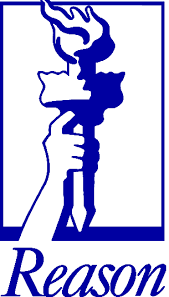
The problem with ATC in Europe is not the organizational structure of ANSPs: nearly all have been corporatized, and all charge their customers for ATC services in accordance with ICAO charging principles. The problem is Balkanization—within the European Union alone there are 27 separate ANSPs, leading to a system far more-costly and less-efficient than that of the United States, with a single ANSP and significant economies of scale. The Single European Sky project is an attempt to fix this, but has foundered on the rocks of nationalism, since no government has been willing to shut down any of its ATC facilities to reduce costs or straighten out dog-leg routes.
But recent months have seen a lot of fresh thinking. One example is last month's launch of the ATM Policy Institute (where ATM means air traffic management, not the money machine at your bank). The Institute's founding members are the innovative ANSPs of the Czech Republic, Ireland, New Zealand, and the UK, along with trade association CANSO. It is chaired by David McMillan, former Director General of Eurocontrol, and former DG of Civil Aviation in the UK Department for Transport. The Institute will explore possible ways to liberalize and open to competition parts of ATC in Europe.
An example of what might be possible comes from the European Parliament. As Aviation Intelligence Reporter revealed in January, Polish MEP Pavel Telicka discovered a little-known provision in the framework legislation for the Single European Sky: permission for a single upper airspace flight information region for all of the E.U. AIR's editor, Andrew Charlton, described the potential as follows:
"The single pan-European upper airspace FIR . . . would extend across all of Europe. The analogy that everyone uses is a superhighway. . . . No longer would flights that go over, but not into, France be subject to the increasingly frequent industrial action [strikes] the various French controllers' unions call. . . . [S]uch a proposal would facilitate making en-route services more competitive. The EU FIR can be controlled from anywhere, for all of Europe. Maybe, in the interests of ensuring back-up and competition in the provision of these services, you could split Europe into three or four [upper area] FIRs, and have a back-up provider on standby. ANSPs could bid for providing these services for fixed periods of time."
Perhaps related to this, CANSO and Airlines for Europe (A4E) have agreed to work together cooperatively to enhance the performance of Europe's ATC system. In the news release announcing this effort, A4E noted that many CANSO members have worked hard to provide an organizational culture of consultation and negotiation that has minimized the likelihood of "industrial action." A4E added that it hopes to work with CANSO on measures to limit the impact of industrial action on consumers and businesses.
Creating a single upper airspace FIR along the lines suggested by Aviation Intelligence Reporter would be a dramatic and effective way to minimize the impact of strikes by workers of a single ANSP, since flights over France (but not landing or taking off there) would be able to travel unobstructed across the country when its (lower-altitude) domestic ATC services were off-line due to a strike.


.jpg)
.png)




